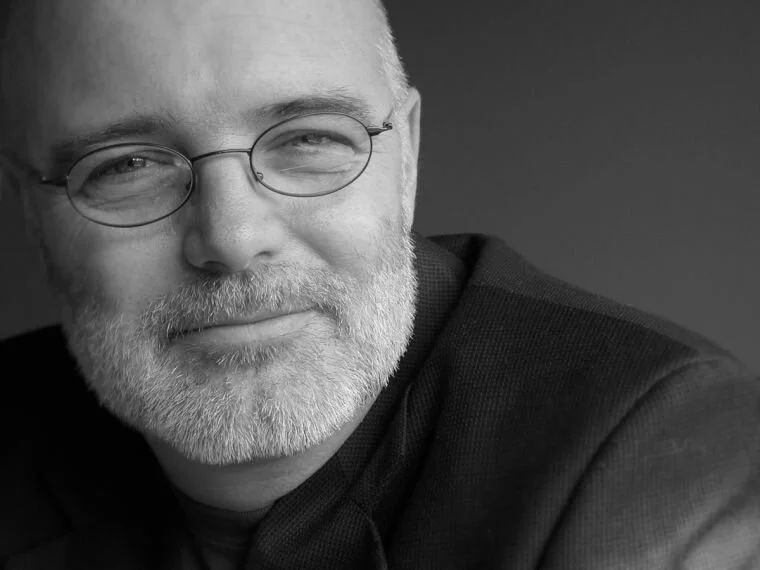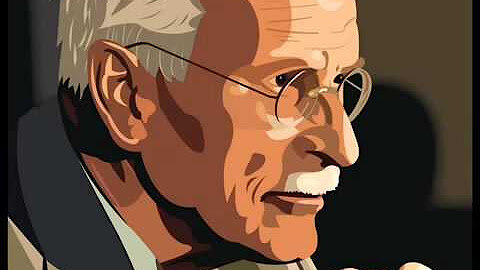
“Brian McLaren says there’s a good reason your beliefs stopped working” by Jana Riess
Please walk us through the four stages of faith and doubt as you outline them in the book, starting with Stage 1.
I think we are all inducted into Stage 1, or Simplicity, in our childhood. This is the stage of simple dualisms: us/them, in/out, right/wrong, strange/familiar, safe/dangerous. Because we’re children and there’s a lot we don’t know, we need authority figures to tell us what’s safe. This is a natural and healthy stage for us as children.

“The Science of Wisdom — Four Sets of Ideas” — (based on the work of Larry Culliford & Iain McGilchrist)
These four sets of ideas will help you understand what we all – members together of humankind – have in common…… And so why wisdom is important, central to who we really are.
Please take some time (a little or a lot, as you choose) to read them through and make sense of them. See how they fit together, saying more about you, and everyone else, than you might have thought seriously about before.

“Spirituality and Art” by Larry Culliford
A priceless living bridge between mind and spirit
The foremost reason that artists create, and the rest of us value their art, is because art forms a priceless living bridge between the everyday psychology of our minds and the universal spirit of humanity.
It's important to make a clear distinction between art and merchandise, and to emphasize the wisdom of avoiding materialist contamination of true art. By "true art," I mean artistic creations that reflect spiritual principles and values like beauty, creativity, honesty, generosity, discernment, patience, and perseverance. To situate art in the marketplace can easily result in spiritually impoverished ephemera, the production of which is governed by worldly priorities like profit, success, power, status, and fame.
CLICK HERE TO SUBSCRIBE TO PSYCHOLOGY TODAY
SUPPORT DR LARRY CULLIFORD’S ‘HAPPINESS WEBSITE’

“Love as the Bridge Between Science and Religion” by Illia Delio
For the ancients, the study of nature was essential to knowing the real. We know not simply to navigate but to narrate our lives, to give reason for the hope which lies within us. The ancient psalmist captured the wonder of the cosmos when he wrote, “when I look at the heavens and the stars which You arranged, what are we that You keep us in mind?” We humans, worn down by complex lives, financial insecurity, interpersonal conflicts and the persistent threat of terrorism, often look to science and technology as our escape route: there is an implicit belief that science will save us from our own demise. But even when we are in the best of health and have the latest gadgets, the deep yearning within us for more being and life is not satisfied by the wonders of science. The deep core of the human person clamors for life because this core is created for the infinite, for absolute love, and cannot rest until it rests in God.

“Moments of Wholeness” by Michael Meade
We face overwhelming problems that affect the entire global community; yet we are becoming increasingly alienated and at odds with each other. It’s not simply that the country is divided; not just that people feel themselves on opposite sides of increasing problems; but also that the center has gone missing. We now live in a gap of culture with opposing sides that appear to be entrenching ever more deeply.
More and more people live in fear of being marginalized, whether on the basis of race or gender, economics or religious belief. Under the spell of demographics and the statistical world view people tend to pick one set of facts and reject others as being unreasonable or even insane.
PLEASE SUPPORT ALL OF MICHAEL MEADE’S INSIGHTFUL AND INSPIRATIONAL WORK

“The Arising Consciousness” (excerpt) THE NEW EARTH by Eckhart Tolle (PART 2)
THE ARISING NEW CONSCIOUSNESS
Most ancient religions and spiritual traditions share the common insight – that our “normal” state of mind is marred by a fundamental defect. However, out of this insight into the nature of the human condition – we may call it the bad news – arises a second insight: the good news of the possibility of a radical transformation of human consciousness. In Hindu teachings (and sometimes in Buddhism also), this transformation is called enlightenment. In the teachings of Jesus, it is salvation, and in Buddhism, it is the end of suffering. Liberation and awakening are other terms used to describe this transformation.

“Our Inherited Dysfunction (excerpt) THE NEW EARTH by Eckhart Tolle (Part 1)
If we look more deeply into humanity’s ancient religions and spiritual traditions, we will find that underneath the many surface differences there are two core insights that most of them agree on. The words they use to describe those insights differ, yet they all point to a twofold fundamental truth. The first part of this truth is the realization that the “normal” state of mind of most human beings contains a strong element of what we might call dysfunction or even madness. Certain teachings at the heart of Hinduism perhaps come closest to seeing this dysfunction as a form of collective mental illness. They call it maya, the veil of delusion. Ramana Maharshi, one of the greatest Indian sages, bluntly states: “The mind is maya.”

James Hillman on “Life, Capitalism, Protestantism, the Soul, the Psyche, Our Biosphere and more…”
This TREETV interview is the one the best overviews I’ve come across in describing both the physiological and ecological mess humanity presently faces. It’s tragic that our political leaders are plagued by sheer ineptitude — that is, a lust for power at the cost of failing to see the interconnection between all living things. I fear our assumption, or more accurately, the illusion of “growing the world’s economy” will be humanity’s undoing.
~Keith Basar

“Tribute to Carl Jung” by Alan Watts — and Jung’s Lecture (excerpt) ‘The Shadow Self to Religious Life’
I’m sitting late at night in a lonely cottage in the country surrounded by many favorite books which I’ve collected over a number of years. And as I look up at the shelves, I see that there’s a very large space. Occupied by the volumes of one man. Carl Gustav Jung, who left this world not more than a few weeks ago. And I’d like to talk tonight about some of the great things that I feel that Jung has done for me. And also the things which I feel to be his enduring contributions toward the science of psychology of which he was such a great master. I began to read Jung when I first began to study Eastern philosophy in my late adolescence. And I’m eternally grateful to him for what I would call a sort of balancing influence on the development of my thought. As an adolescent, in rebellion against the sterile Christianity, in which I was brought up, I was liable to go absolutely overboard for exotic and foreign ideas. Until I read the extraordinarily wise commentary that he wrote to Richard Wilhelm’s translation of the Chinese Taoist text called the “Secret of the Golden Flower.” And it was Jung who helped me to remind myself that I was by, upbringing in by tradition, always a Westerner and I couldn’t escape from my own cultural conditioning.

“On Received, Intellectual and Experiential Wisdom” (Course One) by Renee Chen
Interwoven with an exploration of denial, ignorance and naïveté — a cross-examination of Buddhist teachings and psychodynamic theory
Opening Thoughts
I’ve been pondering a lot about the differences between denial, ignorance and naiveté, and how media popularization of the term “woke” in the last couple of years has, at least for me, undermined and downplayed my understanding and desire to understand some very complex, urgent and critical issues.

“Why Self-Compassion Trumps Self-Esteem” by Kristin Neff
In this incredibly competitive society of ours, how many of us truly feel good about ourselves?
I remember once, as a freshman in college, after spending hours getting ready for a big party, I complained to my boyfriend that my hair, makeup, and outfit were woefully inadequate. He tried to reassure me by saying, “Don’t worry, you look fine.”
“Fine? Oh great, I always wanted to look fine . . .”
The desire to feel special is understandable. The problem is that by definition it’s impossible for everyone to be above average at the same time. Although there are some ways in which we excel, there is always someone smarter, prettier, more successful. How do we cope with this?
SUPPORT ‘GREATER GOOD MAGAZINE’
AND THE GOOD WORK OF Kristin Neff, Ph.D

“The Offered Heart” by Jeannie Zandi
I invite you to close your eyes and imagine that the quiet and sweet darkness you sit in is the cave of your own sacred heart. Let your attention drop into the feel and texture of your heart area, letting it rest about two inches deep inside. Notice the feel, keep your attention there, as though there is a small object about the size of a quarter that are you are focusing on. And imagine the dark cave all around you, a cave whose air is alive with breath and life and energy. Turn away from the external world and the world of the mind and take sweet shelter in your own heart, with the reverence that you would treat any temple, mosque, church, hogan, or zendo. There you sit in the center of your innermost being sanctuary. Precious chalice of the Holy. Simplicity. Quiet. Ground. Breath.

“Consciousness as God” (excerpt - ‘From Science to God’) by Peter Russell —— bonus content: Youtube interview entitled, ‘A REVOLUTION IN CONSCIOUSNESS ’
To many, the statement "I am God" rings of blasphemy. God, according to conventional religion, is the supreme deity, the almighty eternal omniscient creator. How can any lowly human being claim that he or she is God?
When the fourteenth-century Christian priest and mystic Meister Eckhart preached that "God and I are One" he was brought before Pope John XXII and forced to "recant everything that he had falsely taught." Others suffered a worse fate. The tenth-century Islamic mystic al-Hallãj was crucified for using language that claimed an identity with God.
PURCHASE ‘FROM SCIENCE TO GOD’

“Three Kinds of People” by Michael Meade
An old idea suggests there are but three kinds of people in this world. The first kind of person tends to be preoccupied with self-interest as everything refers back to “I, me and mine.” At this basic level the world can be divided into winners and losers as self-assertion rules the day and excesses of aggression and rule-breaking can seem justified. Often, the only restraints on self-aggrandizement become the fear of public shaming or the threat of condemnation and punishment by law.

“Exploring the Inner Journey of Kahlil Gibran” by Paul-Gordon Chandler
A hushed reflective silence filled the dark cinema as the world premiere of The Prophet finished its animated adaptation of Kahlil Gibran’s inspiring book of prose poetry. I had journeyed to the Toronto International Film Festival to experience the unveiling of Salma Hayek’s creative production firsthand and was not alone in feeling the power of Gibran’s words and images reaching across the decades, seemingly so apropos in our modern search for connection with “the other.” In speaking to Salma afterwards she explained her motivation in bringing Gibran’s work to life: “I thought it was crucial that we pay further tribute to this man who was an Arab who wrote a book of spiritual philosophy that unites all religions and all countries and all creeds, from many different generations . . .” In that brief comments, Salma captured the essence of Gibran’s inner journey: the deeper he went, the wider his embrace became.
BE A SUPPORTER OF THE WRITINGS OF PAUL-GORDON CHANDLER and THE INTERFAITH OBSERVER

“Expanding Our Sphere” by Galen Pearl
A minister was giving what I call an “audition sermon” at a church, in hopes of being called as their pastor. After the sermon, members of the congregation were invited to ask questions. Like many churches, this one was becoming smaller and grayer as the members aged. One person asked the minister what he would do to “grow” the church. He responded, “That depends on what you are willing to risk. Everyone like you is already here.”
BE A SUPPORTER OF MS. PEARLS INSPIRING BLOG

“World-Healing Wisdom: Karen Armstrong’s Vision for a Compassionate Future” by Nadia Colburn
The author of more than 20 books, Armstrong has been called “arguably the most lucid, wide-ranging and consistently interesting religion writer today.” Her perspective has been shaped by her life. At the age of 17, she entered a Catholic convent. Six years later, on the verge of a nervous breakdown, she left, wanting nothing more to do with religion. She spent the next 13 years absorbed in secular life, first as an academic and then as a secondary school literature teacher in England. Her first book, Through the Narrow Gate: A Memoir of Spiritual Discovery, was first published in 1981 and chronicles her difficult time in the nunnery and her departure from it. The book launched her as a popular critic of established religion.
Like what you’re reading? YES! is nonprofit and relies on reader support. Click here to chip in $5 or more to help us keep the inspiration coming.

“Jesus: His Religion” – (Pt. 2) by Alan Watts
So, let’s suppose then that Jesus had such an experience. But, you see, Jesus has a limitation, that he doesn’t know of any religion other than those of the immediate Near East. He might know something about Egyptian religion, and perhaps a little bit about Greek religion, but mostly about Hebrew. There is no evidence whatsoever that he knew anything about India or China. And people who think that Jesus was God assume that he must have known because he would have been omniscient. No, Saint Paul makes it perfectly clear in the Epistle to the Philippians that Jesus renounced his divine powers so as to be Man.
BE A SUPPORTER OF THE ALAN WATTS ORGANIZATION

“Jesus: His Religion” – (Pt. 1) by Alan Watts
Some years ago, I had just given a talk on television in Canada when one of the announcers came up to me and said, “You know, if one can believe that this universe is in the charge of an intelligent and beneficent God, don’t you think He would naturally have provided us with an infallible guide to behavior and to the truth about the universe?” Of course I knew he meant the Bible. I said, “No, I think nothing of the kind, because I think a loving God would not do something to His children that would rot their brains.” Because if we had an infallible guide we would never think for ourselves, and therefore our minds would become atrophied. It is as if my grandfather had left me a million dollars, and I am glad he didn’t. And we have therefore to begin any discussion of the meaning of the life and teachings of Jesus with a look at this thorny question of authority, and especially the authority of Holy Scripture.
BE A SUPPORTER OF THE ALAN WATTS ORGANIZATION

Arius vs Athanasius - Lecture by Dr. Richard Rubenstein - Presented by 21st Century Reformation
In a rare presentation, Richard Rubenstein, author and professor of Conflict Resolution at George Mason University, addresses a conference of One God believers in Atlanta. Rubenstein, author of the book "When Jesus became God" brings us exceptional insights into the great Christian conflicts that surrounded the "Arian" controversy and particularly the council of Nicea in 325 AD. This is a must see for everyone with an interest in church history, the development of post-biblical Christian orthodoxy and/or conflict resolution.

